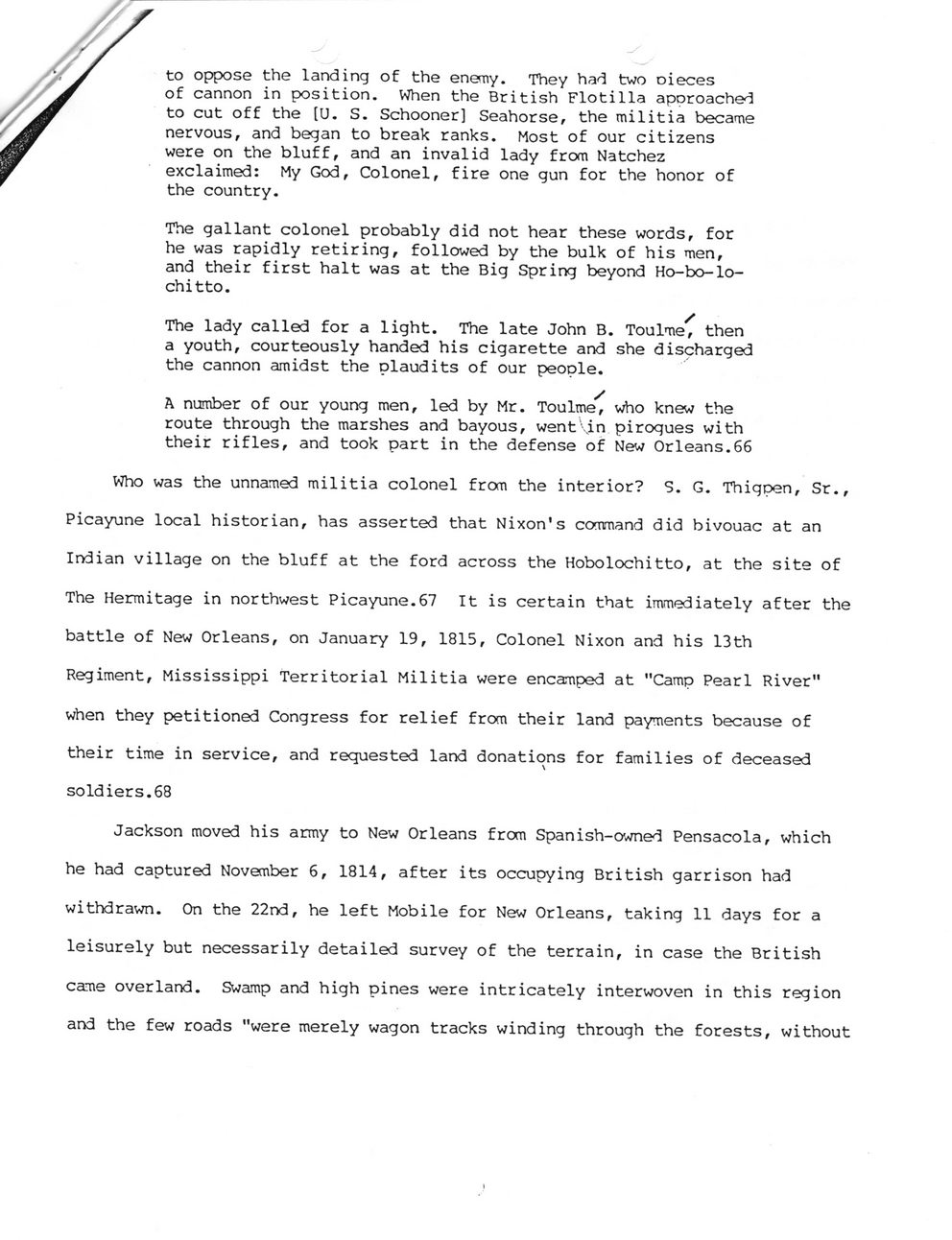This text was obtained via automated optical character recognition.
It has not been edited and may therefore contain several errors.
to oppose the landing of the enemy. They had two Dieces of cannon in position. When the British Flotilla approached to cut off the [U. S. Schooner] Seahorse, the militia became nervous, and began to break ranks. Most of our citizens were on the bluff, and an invalid lady from Natchez exclaimed: My God, Colonel, fire one gun for the honor of the country. The gallant colonel probably did not hear these words, for he was rapidly retiring, followed by the bulk of his men, and their first halt was at the Big Spring beyond Ho-bo-lo-chitto. The lady called for a light. The late John B. Toulme^ then a youth, courteously handed his cigarette and she discharged the cannon amidst the plaudits of our people. A number of our young men, led by Mr. Toulme^ who knew the route through the marshes and bayous, went Vin pirogues with their rifles, and took part in the defense of New Orleans.66 Who was the unnamed militia colonel from the interior? S. G. Thigpen, Sr., Picayune local historian, has asserted that Nixon's command did bivouac at an Indian village on the bluff at the ford across the Hobolochitto, at the site of The Hermitage in northwest Picayune.67 It is certain that immediately after the battle of New Orleans, on January 19, 1815, Colonel Nixon and his 13th Regiment, Mississippi Territorial Militia were encamped at "Camp Pearl River" when they petitioned Congress for relief from their land payments because of their time in service, and requested land donations for families of deceased soldiers.68 Jackson moved his army to New Orleans from Spanish-owned Pensacola, which he had captured November 6, 1814, after its occupying British garrison had withdrawn. On the 22nd, he left Mobile for New Orleans, taking 11 days for a leisurely but necessarily detailed survey of the terrain, in case the British came overland. Swamp and high pines were intricately interwoven in this region and the few roads "were merely wagon tracks winding through the forests, without

Baptist Churches 1942 To 2004 051